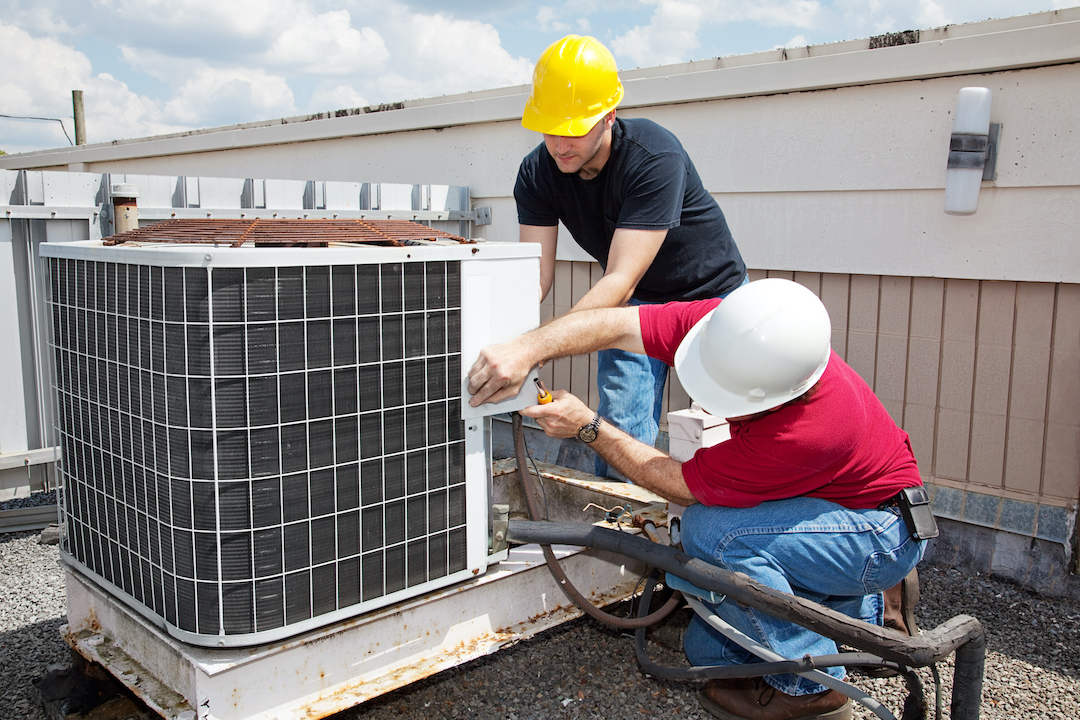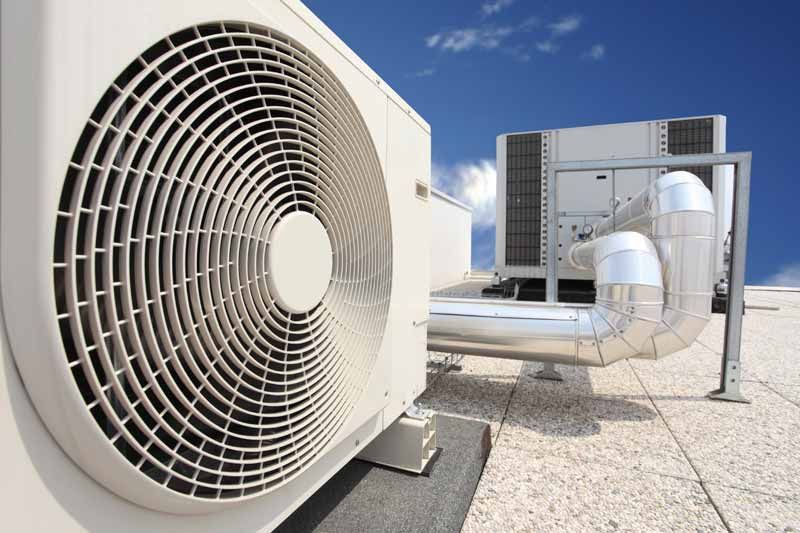Avoid These Mistakes During heat pump replacement ooltewah tn
Avoid These Mistakes During heat pump replacement ooltewah tn
Blog Article
Picking In Between a Warmth Pump and Heating System: Key Factors To Consider for Your HVAC Demands
When examining heating options for heating and cooling requires, the decision in between a heatpump and a furnace can be complex. Each system supplies distinct benefits tailored to details climates and energy effectiveness goals. Comprehending these differences is vital for making an informed choice. Trick variables such as installment expenses and environmental influence better make complex the selection procedure. Which choice absolutely lines up with one's comfort and sustainability preferences? The complying with areas will check out these factors to consider carefully.
Understanding Warm Pumps: How They Work and Their Benefits
While lots of property owners take into consideration various heating alternatives, comprehending how heatpump feature and their benefits can considerably affect their choice. Heatpump operate by moving heat as opposed to creating it. In the winter months, they remove warm from the outdoors air or ground and move it inside, while in the summer season, they reverse this procedure, cooling the home by removing warmth outside. This dual functionality makes them versatile for year-round environment control.One of the primary benefits of heat pumps is their energy effectiveness. They utilize significantly much less power contrasted to standard furnace, possibly resulting in lower utility costs (furnace replacement). In addition, heatpump have a smaller carbon footprint, making them an ecologically pleasant choice. They likewise need much less upkeep than traditional systems, adding to long-term price financial savings. In general, comprehending the auto mechanics and advantages of heatpump can assist home owners make educated choices concerning their home heating and cooling down requirements
Checking Out Heating Systems: Kinds, Procedure, and Advantages
Heaters can be found in various types, including gas, electric, and oil designs, each with distinct functional devices. Understanding these distinctions is vital, as they affect effectiveness and heating efficiency. In addition, heating systems supply various advantages, such as constant heat outcome and reliability in chillier environments.
Sorts of Furnaces
Heating unit can differ significantly in layout and operation, with furnaces being a preferred option among house owners. There are a number of sorts of heaters, each making use of different gas sources and modern technologies. Gas heating systems are common, leveraging gas to generate heat successfully. Electric furnaces, on the other hand, make use of electrical resistance to generate heat, typically favored for their uncomplicated setup. Oil furnaces, while much less common, are efficient in areas with restricted gas access (heat pump replacement ooltewah tn). Furthermore, condensing furnaces take full advantage of energy effectiveness by recording and recycling exhaust gases. Each kind runs via a system of warmth exchangers and ductwork to distribute cozy air throughout a home. Recognizing the differences in between these heating system kinds is crucial for educated HVAC choices
Advantages of Heating systems
For property owners seeking reliable warmth during cold months, the benefits of furnaces are significant. Heating systems supply regular heating, ensuring also temperatures throughout the home. They are particularly effective in extreme cold, commonly exceeding heatpump in frigid conditions. Different kinds, consisting of gas, electrical, and oil heaters, provide versatility to satisfy varied demands and preferences.Furnaces additionally tend to have lower initial installation costs compared to heatpump, making them an extra accessible choice for lots of. Their durable style adds to a longer life expectancy, with numerous units lasting over 15 years with appropriate upkeep. In addition, modern-day heating systems are usually equipped with advanced technology for boosted performance, which can bring about lowered power bills. Overall, heaters remain a dependable choice for reliable home heating.

Energy Performance: Contrasting Heat Pumps and Furnaces
When contrasting power performance in between heatpump and heaters, the Seasonal Energy Effectiveness Proportion (SEER) plays a vital duty in identifying efficiency. In addition, an operational expense evaluation discloses the long-term financial ramifications of each system. Recognizing these factors can guide property owners in making notified choices concerning their heating services.
Seasonal Energy Effectiveness Proportion
Power performance plays an essential role in the decision-making process between heatpump and heaters, specifically when taking into consideration the Seasonal Energy Efficiency Ratio (SEER) This metric steps the cooling effectiveness of heatpump over an entire air conditioning period, supplying a standard means to review efficiency. Greater SEER scores suggest greater energy efficiency, converting to reduced energy usage and decreased utility bills. On the other hand, heating systems are typically assessed using the Yearly Gas Use Effectiveness (AFUE) score, which shows home heating performance. When contrasting these two systems, property owners ought to focus on SEER scores for heatpump, as they directly impact total energy savings and ecological sustainability. An extensive understanding of SEER can notably affect the long-lasting fulfillment and cost-effectiveness of the chosen HVAC remedy.
Functional Expense Analysis
Recognizing the functional costs linked with warm pumps and furnaces is essential for house owners assessing their options. Heatpump usually offer greater energy performance, transforming electrical energy into warm with minimal waste. This leads to reduced regular monthly energy bills, especially in moderate environments. On the other hand, typical heaters, especially gas designs, may have reduced ahead of time costs yet can incur higher functional expenses with time because of sustain costs and effectiveness ratings.Moreover, heatpump can operate as both heating and cooling down systems, possibly minimizing the need for different heating and cooling systems. While first financial investments for heatpump may be greater, their long-term cost savings in power efficiency can make them a much more cost-efficient choice for many homes. Careful evaluation of neighborhood power prices is vital to establish the most effective choice.
Installment Expenses: What to Anticipate for every Heater
Installation prices for home heating systems can vary considerably between heat pumps and heating systems, affecting home owners' decisions. Heatpump typically have higher in advance installation costs, typically ranging from $3,500 to $8,000, depending on the device dimension and intricacy of installation. This includes the outside unit, interior handling system, and essential ductwork alterations. Conversely, heaters have a tendency to have reduced preliminary costs, balancing in between $2,500 and $6,000, which can be appealing for budget-conscious property owners. Installation expenditures can boost if extensive ductwork is required.Moreover, the selection of gas type for heaters-- natural gas, lp, or electric-- can additionally influence setup prices. While warmth pumps supply power efficiency, their initial investment might hinder some buyers. Ultimately, examining setup prices together with lasting cost savings and performance will assist homeowners in making notified choices concerning their heating unit.
Environment Considerations: Which System Performs Better in Your Location
Just how do climate problems affect the performance of heater? The efficiency of warm pumps and heating systems can vary substantially depending upon the neighborhood climate. In modest climates, warm pumps stand out by effectively moving heat from the outdoors air, making them an energy-saving option. Their effectiveness reduces in incredibly cool temperatures, where they might struggle to remove sufficient warmth. Alternatively, heating systems, especially gas designs, offer reliable and constant warmth despite outside conditions, making them more suitable in cooler regions.In areas that experience milder winter seasons, heatpump can run successfully year-round, providing both heating & cooling. In contrast, regions with rough wintertimes commonly take advantage of the effectiveness of furnaces. Ultimately, recognizing the regional environment is essential when making a decision in between a heatpump and a heater, as it straight impacts their functional performance and general efficiency.
Maintenance Demands: Long-Term Take Care Of Warm Pumps vs. Furnaces
While both heatpump and heating systems require normal upkeep to ensure peak performance, their certain needs and care routines differ substantially. Heating systems typically need less constant interest, with yearly assessments being sufficient to inspect for gas leakages, clean filters, and examine total capability. Their easier style typically permits Click Here straightforward repairs.In comparison, warmth pumps demand biannual maintenance because of their dual function in home heating and cooling. This includes cleaning coils, inspecting cooling agent levels, and making certain that both the outdoor and indoor devices work at their best. In addition, heat pump upkeep typically includes more elaborate elements, making expert servicing essential.Neglecting upkeep can cause diminished effectiveness and increased energy prices for both systems. Ultimately, house owners need to take into consideration these long-lasting care requirements when choosing between a heatpump and a heater, as aggressive upkeep can expand the life expectancy and efficiency of either system substantially.
Ecological Effect: Choosing a Lasting Heating Choice
The environmental influence of furnace is a critical assessment for home owners looking for lasting options. Heatpump are typically much more energy-efficient than conventional heaters, as they move heat instead of produce it, substantially lowering carbon exhausts. By using renewable resource sources, such as air-source or geothermal warm pumps, homeowners can better reduce their eco-friendly footprint.On the various other hand, gas heating systems send out greenhouse gases and add to air contamination, though they commonly give greater warmth result. Nonetheless, developments in modern technology have actually caused the advancement of high-efficiency heating systems that decrease emissions.Ultimately, selecting a heating unit includes considering effectiveness against ecological impact. Homeowners are motivated to mirror on neighborhood power sources and motivations for renewable systems, ensuring a selection that lines up with both personal comfort and ecological responsibility. The decision influences not just prompt comfort yet also long-term sustainability and ecological wellness.
Regularly Asked Inquiries
How Much Time Do Warmth Pumps and Furnaces Commonly Last?
The life expectancy of warm pumps generally ranges from 15 to twenty years, while heaters can last in between 15 to 30 years. Normal upkeep substantially affects their long life and performance in supplying heating options.
Can I Use a Heatpump in Incredibly Cold Climates?
Heatpump can run in incredibly cool climates, but their effectiveness reduces as temperatures decrease. In such problems, supplementary heating sources might be needed to preserve comfy interior temperatures and ensure peak performance.

What Is the Sound Degree of Heat Pumps Versus Furnaces?
The sound levels of warm pumps and furnaces differ substantially. Normally, heatpump run more silently than conventional heaters, making them more suitable for those conscious seem, while furnaces might create louder functional noises throughout home heating cycles.
Are Warmth Pumps Suitable for Both Home Heating and Air conditioning?
Heatpump are certainly suitable for both home heating and cooling (ductless mini splits). They operate by moving heat, offering effective temperature level control year-round, making them a functional choice for house owners seeking an all-in-one HVAC solution
What Dimension Furnace Do I Required for My Home?
Establishing the proper dimension heating system for a home needs evaluating aspects such as square video footage, insulation top quality, regional climate, and the home's design. Consulting a specialist can assure an exact analysis and ideal comfort. Heat pumps commonly offer higher power effectiveness, transforming electrical power into heat with very little waste. In modest environments, heat pumps succeed by effectively moving warmth from the outdoors air, making them an energy-saving option. Alternatively, heating systems, particularly gas models, supply constant and dependable heat no matter of exterior problems, making them better in cooler regions.In locations that experience milder winters months, heat pumps can operate properly year-round, supplying both click for source home heating and cooling. Warm pumps are generally much more energy-efficient than typical furnaces, as they move heat rather than create it, greatly lowering carbon discharges. By utilizing eco-friendly energy resources, such as air-source or geothermal warm pumps, house owners can additionally minimize their environmental footprint.On the other hand, natural gas heating systems emit greenhouse gases and next add to air pollution, though they often supply greater warmth output.
Report this page